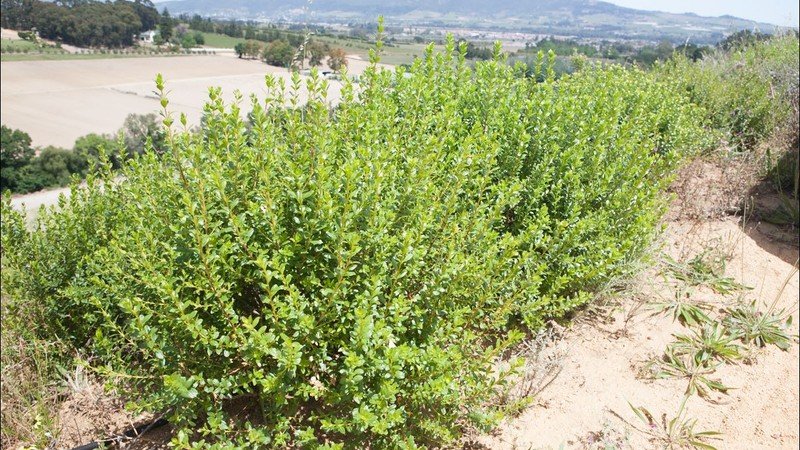The Buchu plant, indigenous to South Africa, has garnered international attention due to its myriad medicinal uses. Derived mainly from three species—Barosma betulina, B. crenulata, and B. serratifolia—the leaves have different commercial and medicinal values. As the demand for Buchu leaves has escalated, so too has the need for stringent regulations governing their collection. This article focuses exclusively on the rationale behind the Cape Government’s tight control over Buchu leaf gathering.
Why is There a Strict Control Over the Gathering of Bunchu Leaves
There is Strict Control Over the Gathering of Buchu Leaves because of the following reasons:
- Overharvesting: To prevent the depletion of the plant species and maintain ecological balance.
- Environmental Protection: Buchu plants contribute to soil stability, and unregulated gathering could lead to soil erosion.
- Illegal Trade and Poaching: High market demand makes Buchu leaves a target for illegal harvesting, necessitating stringent regulations.
- Indigenous Rights: To protect the cultural and traditional practices associated with Buchu leaves, particularly among the Hottentots in South Africa.
- Quality Control: To ensure that only leaves with the optimal concentration of medicinal constituents are harvested and distributed.
- Economic Fairness: Regulation ensures ethical sourcing, which supports local economies and fair trade.
- Scientific Research and Cultivation: To encourage and monitor scientific studies related to the sustainable cultivation of Buchu plants.
- Preservation of Medicinal Efficacy: Ensures that the leaves used in medicinal preparations meet required quality standards.
- Cultural Preservation: To protect indigenous knowledge and prevent its commercial exploitation without appropriate compensation.
- Legal Compliance: To align with international trade laws and standards, ensuring that export and use are appropriately regulated.
Overharvesting and Sustainability
The medicinal and commercial value of Buchu leaves, particularly those of Barosma betulina, has led to a surge in harvesting activities. Overharvesting poses a severe risk to the plant species and the ecosystems they inhabit. To ensure that Buchu plants are harvested sustainably, licenses are now required for both picking and purchasing Buchu leaves.
Protecting Native Habitats
Buchu plants play a crucial role in preventing soil erosion and maintaining the local ecology. The uncontrolled gathering of leaves compromises this balance, justifying government oversight to protect native habitats.
Legal Measures Against Poaching
Given the high commercial value of Buchu leaves, especially the ‘shorts’ (Barosma betulina), illegal trade and poaching have become prevalent. The Cape Government’s strict regulations aim to curb these illegal activities by ensuring that only licensed individuals can gather or buy the leaves.
Indigenous Rights and Cultural Preservation
Buchu has significant cultural importance among indigenous communities, especially the Hottentots, who have historically used the leaves for various purposes including body perfuming. Tight controls on gathering Buchu leaves serve to protect the cultural heritage and traditional knowledge of these communities.
Quality Control and Medicinal Efficacy
The principal constituents of Buchu leaves, such as volatile oil, mucilage, and diosphenol, have varying concentrations depending on the species and the harvesting conditions. Strict controls are in place to ensure that only leaves of the highest quality, effective for medicinal use, are collected and exported.
Economic Aspects: Fair Trade and Local Economies
Stringent regulations ensure that Buchu leaves are sourced ethically, supporting fair trade and boosting local economies. Moreover, licenses facilitate the monitoring of Buchu transactions, encouraging lawful trade practices.
Scientific Research and Cultivation
To ensure the long-term availability of this resource, the Cape Government has also encouraged scientific research into Buchu cultivation. Experiments at the National Botanic Gardens in Kirstenbosch indicate that commercial cultivation is feasible under specific conditions, particularly for Barosma betulina.
Conclusion
The Cape Government’s strict controls on the gathering of Buchu leaves are multi-faceted in their objectives, aiming to protect not just the plant but also the surrounding ecosystems, local economies, and indigenous cultures. These measures underscore the significance of Buchu leaves and highlight why such stringent controls are not just beneficial but essential for sustainable usage and long-term conservation.
Further Reading
A Modern Herbal | Buchu – Botanical.com




